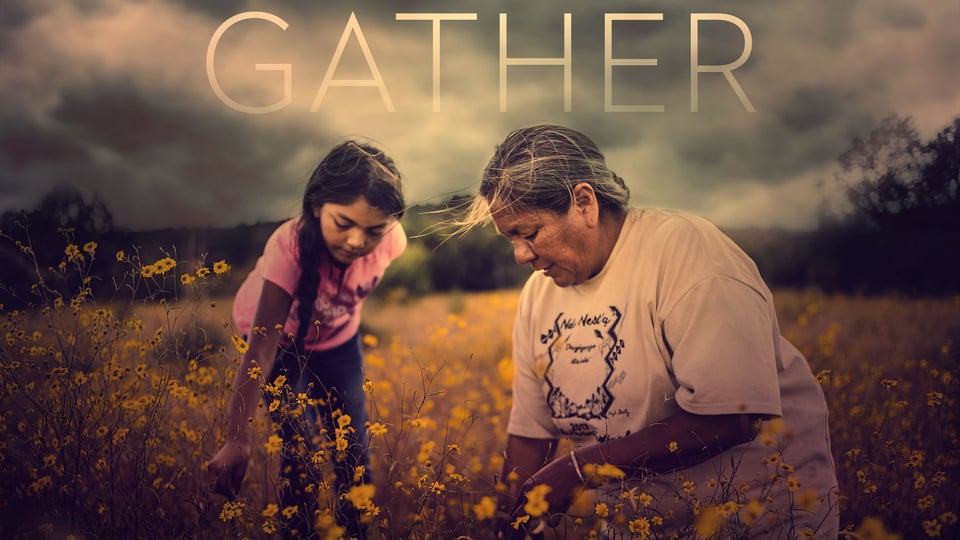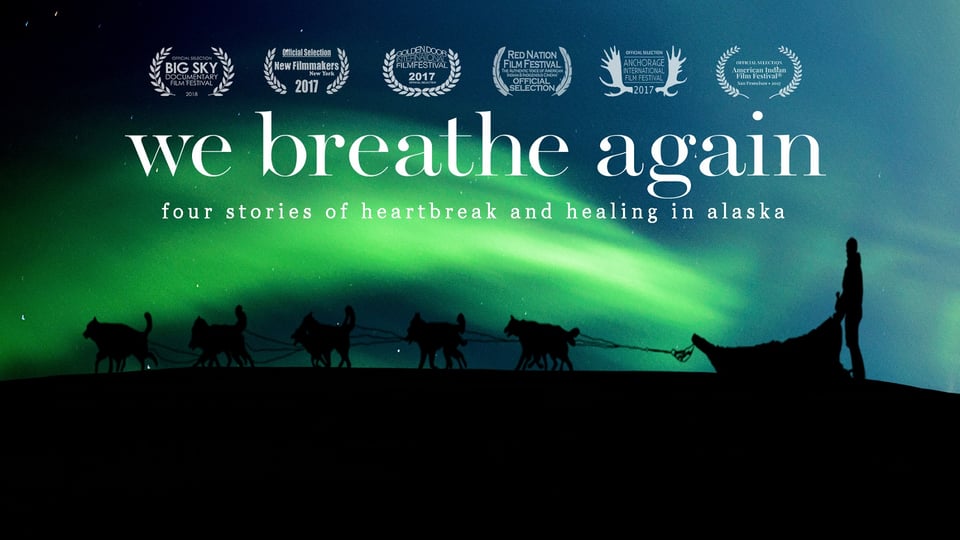
“It is important to understand that there are many different ways of seeing the world and expressing the wisdom of Native belief...No one voice speaks for all voices.”
– Joseph Bruchac, Abenaki
National Native American Heritage Month is celebrated in November to recognize the history, culture, and achievements of the original inhabitants of the United States and their descendants. See below for select VSCS Libraries materials by Native American authors and filmmakers, or that explore the culture, achievements, and struggles of Native people and communities in Vermont and across the United States.
A sampling of recent or noteworthy books by Native American authors or that explore Native American culture and history in Vermont and across the United States. All electronic titles are available to read online and our physical titles may be requested for pick-up at a VSCS library or sent to your home.
Today in the United States, there are more than five hundred federally-recognized Indigenous nations comprising nearly three million people, descendants of the fifteen million Native people who once inhabited this land. The centuries-long genocidal program of the US settler-colonial regimen has largely been omitted from history. Now historian and activist Roxanne Dunbar-Ortiz offers a history of the United States told from the perspective of Indigenous peoples and reveals how Native Americans, for centuries, actively resisted expansion of the US empire.
A powerful work of reportage and American history in the vein of Caste and How the Word Is Passed that braids the story of the forced removal of Native Americans onto treaty lands in the nation's earliest days, and a small-town murder in the '90s that led to a Supreme Court ruling reaffirming Native rights to that land over a century later.
A sweeping and overdue retelling of U.S. history that recognizes that Native Americans are essential to understanding the evolution of modern America.
Haunting illustrations are woven throughout these horror stories that follow one extended Cherokee family across the centuries and well into the future as they encounter predators of all kinds in each time period.
Set in a Native community in Maine, Night of the Living Rez is a riveting debut collection about what it means to be Penobscot in the twenty-first century and what it means to live, to survive, and to persevere after tragedy.
In this transcendent memoir, grounded in tribal myth and ancestry, music and poetry, Joy Harjo, one of our leading Native American voices, details her journey to becoming a poet.
Presents a true account of the early twentieth-century murders of dozens of wealthy Osage and law-enforcement officials, citing the contributions and missteps of a fledgling FBI that eventually uncovered one of the most chilling conspiracies in American history.
Bury My Heart at Wounded Knee is Dee Brown's eloquent, fully documented account of the systematic destruction of the American Indian during the second half of the nineteenth century. A national bestseller in hardcover for more than a year after its initial publication (1971), it has sold almost four million copies and has been translated into seventeen languages. Using council records, autobiographies, and firsthand descriptions, Brown allows the great chiefs and warriors of the Dakota, Ute, Sioux, Cheyenne, and other tribes to tell us in their own words of the battles, massacres, and broken treaties that finally left them demoralized and defeated.
A moving collection of twenty powerful essays, poems, and more that capture and celebrate the modern Native American experience, featuring entries by Angeline Boulley, Madison Hammond, Kara Roselle Smith, and many more.
Extending his constellation of narratives into the past and future, Tommy Orange traces the legacies of the Sand Creek Massacre of 1864 and the Carlisle Indian Industrial School through three generations of a family in a story that is by turns shattering and wondrous.
Dawnland Voices calls attention to the little known but extraordinarily rich literary traditions of New England's Native Americans. This pathbreaking anthology includes both classic and contemporary literary works from ten New England indigenous nations: the Abenaki, Maliseet, Mi'kmaq, Mohegan, Narragansett, Nipmuc, Passamaquoddy, Penobscot, Schaghticoke, and Wampanoag.
The beautifully illustrated Held by the Land guides you through the traditional uses and properties of a selection of indigenous plants.
Tightly woven Indigenous YA thriller that explores masculinity and love between generations of family. From acclaimed author Anton Treuer comes a novel that''s both taut thriller and a raw, tender coming-of-age story, about one Ojibwe boy learning to love himself through the love of his family around him.
A moving and deeply engaging novel about a young Native American man as he learns to find strength in his familial identity. Oscar Hokeah's electric debut takes us into the life of Ever Geimausaddle, whose family--part Mexican, part Native American--is determined to hold onto their community despite obstacles everywhere they turn. Honest, heartbreaking, and ultimately uplifting, Calling for a Blanket Dance is the story of how Ever Geimausaddle finds his way home.
n 2012, Matika Wilbur sold everything in her Seattle apartment and set out on a Kickstarter-funded pursuit to visit, engage, and photograph people from what were then the 562 federally recognized Native American Tribal Nations.
Describes the actions of both whites and Comanches during a 40-year war over territory, in a story that begins with the kidnapping of a white girl, who grew up to marry a Comanche chief and have a son, Quanah, who became a great warrior.
A small independent bookstore in Minneapolis is haunted from November 2019 to November 2020 by the store's most annoying customer. Flora dies on All Souls' Day, but she simply won't leave the store. Tookie, who has landed a job selling books after years of incarceration that she survived by reading with murderous attention, must solve the mystery of this haunting while at the same time trying to understand all that occurs in Minneapolis during a year of grief, astonishment, isolation, and furious reckoning.
Nineteen-year-old Cowney Sequoyah yearns to escape his hometown of Cherokee, North Carolina, in the heart of the Smoky Mountains. When a summer job at Asheville's luxurious Grove Park Inn and Resort brings him one step closer to escaping the hills that both cradle and suffocate him, he sees it as an opportunity.
A gorgeous story of a native Hawaiian family, telling a tale of old gods & faith & modernity & survival & sexuality & the history of Hawai’i & just so much more.
Whiskey Tender traces how a mixed tribe native girl--born on the California Yuma reservation and raised in Navajo territory in New Mexico--comes to her own interpretation of identity, despite her parent's desires for her to transcend the class and "Indian" status of her birth through education. Taffa's childhood memories unspool into meditations on tribal identity, the rampant criminalization of Native men, governmental assimilation policies, the Red Power movement, and the negotiation between belonging and resisting systemic oppression.
Winner of the Pulitzer Prize for history. Offers a sweeping account of a thousand years of Native American history, emphasizing the complexity, adaptability, and enduring power of Indigenous societies. Long before European contact, Native peoples built thriving urban centers and developed sophisticated political and economic systems. Rather than being passive victims of colonization, Indigenous nations actively shaped and resisted European influence, often maintaining dominance and manipulating colonial powers to serve their own goals. Through detailed examples—from the Mohawks to the Cherokees—DuVal reframes North American history around the sovereignty and agency of Native peoples, asserting their continued influence into the present and future.
A group of well-intentioned white teaching artists scramble to create an ambitious "woke" Thanksgiving pageant. Despite their eager efforts to put on the most culturally sensitive show possible, it quickly becomes clear that even those with good intentions can be undone by their own blind spots.
From the Indigenous scientist and author of Braiding Sweetgrass, a bold and inspiring vision for how to orient our lives around gratitude, reciprocity, and community, based on the lessons of the natural world.
A moving memoir-in-verse that chronicles one Native teenager's search for belonging. The term "Apple" is a slur in Native communities across the country. It's for someone supposedly "red on the outside, white on the inside." In Apple (Skin to the Core), Eric Gansworth tells his story, the story of his family--of Onondaga among Tuscaroras--of Native folks everywhere. From the horrible legacy of the government boarding schools, to a boy watching his siblings leave and return and leave again, to a young man fighting to be an artist who balances multiple worlds, Eric shatters that slur and reclaims it in verse and prose and imagery that truly lives up to the word heartbreaking.
A sampling of recent or noteworthy films by Native American filmmakers or that explore Native American culture and history in Vermont and across the United States. Videos are from the library streaming video databases: Kanopy and Films on Demand.
If you haven't accessed Kanopy before, learn how to set up your account in this FAQ.

2020 1 hr. 14 min.
Gather follows the stories of natives on the frontlines of a growing movement to reconnect with spiritual and cultural identities that were devastated by genocide.

2021 54 min.
Home From School follows the difficult journey of Soldierwolf and tribal elders as they delve into the controversial history of Indian boarding schools, patch together the historic record and personal stories of the relatives who were shipped away, and, finally, travel to Carlisle to reunite with, and ultimately retrieve, the lost children of their tribe.
Educational Toolkit (discussion guides, etc.)

2017 1 hr. 9 min.
An exploration of Native American-based mascots, especially the Washington R_dskins, and their impact on real-life attitudes, issues, and policies. Through interviews with scholars, tribal leaders, lawyers, policy experts, activists, and Washington R_dskins fans, the film explores the history of the slanderous term "redskin," and delves into cultural stereotypes of Native Americans and their relationship to history. Ultimately, the film argues for representations that honor and celebrate the humanity of Indigenous people.

2011 1 hr. 32 min.
Featuring stunning footage from seven winters in the Arctic, People of a Feather takes us through time into the world of the Inuit in the northern reaches of Canada. Connecting past, present and future is the Inuit's unique relationship with the eider duck. Eider down, the warmest feather in the world, allows both Inuit and bird to survive harsh Arctic winters.

2017 56 min.
For millennia, Alaska Native peoples thrived in the seasonally harsh conditions of life in the far north. They depended upon strong social, cultural and spiritual practices passed from generation to generation. In the last century, rapid and forced changes in the life ways of Alaska Native peoples created many complex, painful scars for Elders who experienced them, and for their children’s children. In a landscape as dramatic as its stories, We Breathe Again intimately explores the lives of four Alaska Native people, each confronting the impacts of inter-generational trauma and suicide.

2009 5 1 hr. 20 min. episodes
A provocative multi-media project that establishes Native history as an essential part of American history. The centerpiece of this initiative is a television series that tells five heartbreaking, yet inspiring stories. Together they highlight Native ingenuity and resilience over the course of 300 years. The series upends two-dimensional stereotypes of American Indians as simply ferocious warriors or peaceable lovers of the land.
This work is licensed under CC BY-NC-SA 4.0
